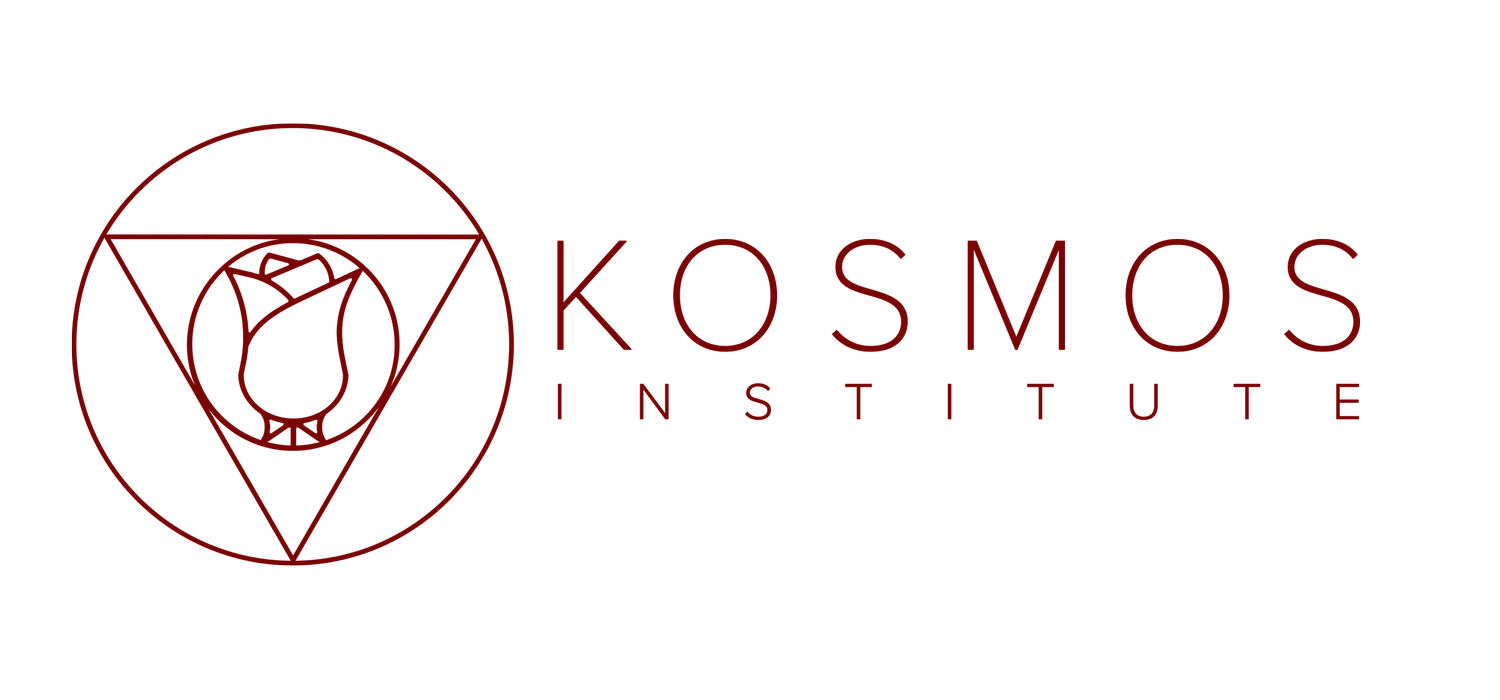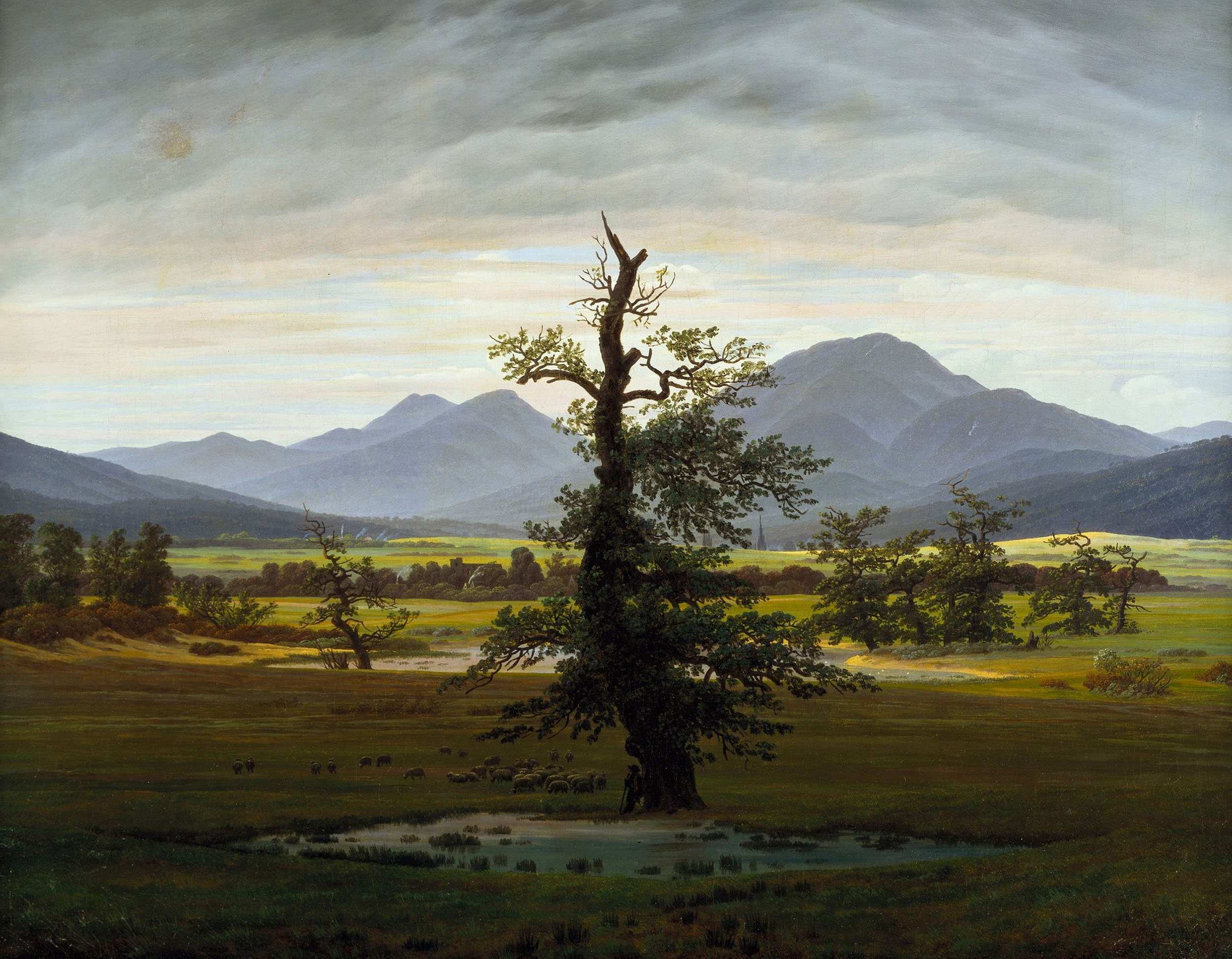Esotericism and the American Spirit I: Modern Foundations/Perennial Questions
Dr. Daniel J. Polikoff
Winter 2026
The social and political disturbances evident in America today reflect a deeper intellectual imbalance. The ideological schisms that so divide us reflect fractures written into the advent of modernity itself, most notably the split between religion and science. Esotericism has been described as a "third wave" of culture, one that offers integration rather than polarization of the mind and the heart.
This inaugural course in the Esotericism and the American Spirit series aims to recollect and elaborate the esoteric currents that fed into both the political founding of the nation, and the American Renaissance that marked its cultural independence.
We will plot a course touching on outstanding developments of the 15th through the 20th centuries, concentrating on select formative moments and texts of early modernity (Ficino and Pico's Italian Renaissance; 16th-17th century Rosicrucianism; church and state in Roger William's colonial America; the Age of Reason and revolutionary era; European Romanticism, and Emersonian Transcendentalism) before concluding with attention to two thought streams (depth psychology and anthroposophy) that represent western esotericism's most influential contemporary heirs.
The course functions both as a historical survey of leading movements and personalities and an introduction to the chief themes—the perennial questions—that define esotericism in the West, preparing the ground for more intensive explorations of esotericism in and of the American Spirit.
Nine Saturdays Live on Zoom
2 PM — 3:30 PM PST
January 10 - March 7, 2026
Enrollment opens September 21, 2025
Daniel Joseph Polikoff (Ph.D. Comparative Literature, Cornell; Teaching Diploma, Rudolf Steiner College) is a poet, translator, literary scholar and philosopher. He has published seven books of criticism, translation, poetry and creative non-fiction. He is best known for his Rilke scholarship, especially his major opus In the Image of Orpheus: Rilke, A Soul History. He has taught at three Waldorf High Schools as well as Sonoma State University, California Institute of Integral Studies, and the Jungian Depth and Archetypal Psychology (DJA) department at Pacifica Graduate Institute, where he designed and teaches the core course The Poetic Basis of Mind. In the early 1980s, Daniel had the privilege of studying with the philosopher-astrologer Anthony Damiani and later conducted a professional astrology practice under the aegis of Hermes' Wand. More recently, he has turned attention back to the subject of his Ph.D. thesis (Ralph Waldo Emerson) and is currently at work on a multivolume project titled Reset or Renaissance: Life, Liberty and the Quest for Enlightenment in a Post-Covid World. The first volume (Two Roads: An American Scholar's Covid Chronicle) appeared from Steinerbooks in May, 2024. The second (Covid and the Apocalypse of the Modern Mind ) is forthcoming in early 2024. His work on these projects inspire and fuel his development of the EAS series for Kosmos Institute.
Syllabus at a Glance:
Week One: Introduction
The Spirit of our Times: a state of disunion. The Covid moment. Technocracy vs theocracy; left and right-wing authoritarianism. What is esotericism, and why study it now? Concepts of history. The evolution of consciousness. Modernity and its connection with esotericism.
Week Two: The Renaissance
Out of the Middle Ages. Petrarch as transitional figure. Voyaging the world. Retrospective vision. Classical humanism and the retrieval of ancient culture. Anima (soul) and the liberal arts. Ficino, the Platonic Academy and the Prisci Theologia. Pico and Syncretic Philosophy.
Week Three: Reformation and its Repercussions: Religion and Politics in the 16th and early 17th Centuries
Luther's Predecessors (Wycliffe, Hus) and the Ground of Complaint. Luther. Religious Conflict. Church, State and Law in England (Henry the VIII and the Anglican Church; the Elizabethan Era; King James; the Common Law tradition). Roger Williams and the Seed of Democracy in America.
Week Four: Esoteric Currents in the 16th and early 17th Centuries
Giordano Bruno and the Hermetic Tradition. Jakob Böhme (Christian Theosophy and Sophiology). Rosicrucianism and the millenial hope for a unific culture and an Age of Spirit.
Week Five: The Great Rift: Scientific Revolution and Sources of the Modern Self
Esoteric downfalls: Bruno's burning and the Battle of White Mountain. Francis Bacon: Knowledge as Power. Descartes: The Ego Cogito and the Epistemology of the Modern Self. Galileo and the Separation of Church and Science. Thomas Hobbes: The Leviathan roots of Technocracy.
Week Six: The Enlightenment and Revolutionary Era
John Locke: empiricist epistemology, natural rights polity. The Age of Reason. Diderot, D'Alembert, and the project of the Encyclopedia.Voltaire and Religious (In)tolerance. The torch of Liberty: American and French Revolutions. Kant.
Week Seven: The Romantic Reaction
The (Post-Kantian) Jena Set. Goethe and the "Urphenomena." Living Nature; Metamorphosis and Organism vs Mechanism. English Romanticism Wordsworth and Coleridge: Preface to the Lyrical Ballads and "the language of ordinary men." Wordsworth's Prelude: Autobiography as Epic. The Centrality of the Imagination and the Interiorization of Divinity. Novalis and Fairy Tale.
Week Eight: American Renaissance
The New England Context. Emerson's Biography. The American Mythos. The Break from the Church. Transcendentalism and the American Spirit: Emersonian Nature. The Idea of Culture. The Poetic Imperative. Whitmanian Self. (Thoreau's contribution. The Darker Side: Melville and the Leviathan Shadow. The feminine angle: Dickinson, Fuller).
Week Nine: Modern Currents
The late 19th century: Industrialism, the concretization of materialism and "the death of God" (Nietzsche). Freud, Jung and Emergence of Depth Psychology. Rilke. Steiner's Anthroposophy. Gebser's Integral Philosophy. Hillman's Archetypal Psychology. Tarnas and Archetypal Astrology. Damiani's Astronoesis. "The Doctrine of the Soul" and how it all hangs together. The Aquarian Age (or Age of the Spirit): A Path toward the Future?


